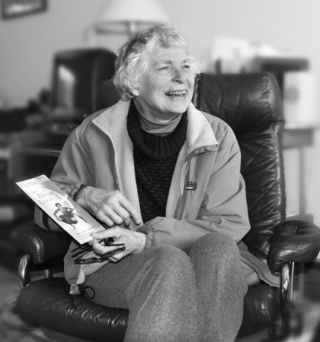Like anyone about to join the Peace Corps, Rhoda Karusaitis is immersed in preparations for her journey. She’s excited; she’s nervous, and she’s spending a lot of time learning the language of her future home.
But unlike most who enter the Peace Corps, Karusaitis isn’t in her 20s or 30s. She’s 74.
She’s one of a small but growing population of Peace Corps volunteers who are 50 or older.
Of the organization’s nearly 8,000 volunteers, only 5 percent are “50-plus,” said Melanie Forthun, a Peace Corps public affairs specialist. But in the last 18 months, the Peace Corps has seen applications from people 50 and older increase by 44 percent — perhaps because of the economy and perhaps because of a campaign launched by the organization to increase participation of older volunteers.
“I want to be a grandmother out there, and let people see the grandmother face of America,” said Karusaitis with a warm smile. “This is a whole lot more than I thought grandmothering would be, of course.”
A fit retiree and frequent Red Cross disaster response volunteer, Karusaitis learned in November she’ll be teaching science in Ghana to students ages 12 to 22. The adventurous grandmother of five leaves in June for three months of training before she’s stationed in the east African nation for two years.
Karusaitis said she’s drawn to the “sense of adventure” the Peace Corps offers.
“I like to be tugged at, and try what I haven’t done before,” Karusaitis said. “I’ve done quite a bit with the Red Cross in the U.S., but this will be very different.”
A former industrial hygienist who has worked both on the ground and behind the scenes at disaster areas including the Gulf Coast, Karusaitis was chosen for her role because of her scientific knowledge, she said.
“They had countries that were asking for science teachers, but they weren’t getting any,” Karusaitis said of the Peace Corps. “So if anyone had any science in their background, like me, they’d try to make them into a science teacher.”
To research her future occupation, where she may teach groups of 45 students and will work at least five days a week, she spent time observing in the classrooms of Vashon High School science teachers Elisabeth Jellison and Tom DeVries recently, she said.
“I think she’s being really brave,” Jellison said. “She has a lot of empathy; she’s a very good listener, and you can tell she really cares about people. I think the students there will be really lucky to have her.”
DeVries added that Karusaitis is “intensely interested” in the mechanics of a classroom, including “the process you use to instruct students,” he said.
“I think with her intense interest in that, she’ll make a great Peace Corps teacher in Ghana,” DeVries said. “I hope I have the courage to try something like that when I’m 74.”
Besides brushing up on her science and instruction skills, Karusaitis is also learning Twi, one of the 75 languages spoken in Ghana. Though she’ll be teaching science in English, it’s recommended that she learn a little of the local languages.
She’s also taking an African dance class in Seattle to get a taste of “the feeling of the country and the people,” she said.
There are still many unknowns for Karusaitis — whether she’ll be living in the jungle or the arid region of Ghana, for example, or whether she’ll have electricity.
She acknowledged that life in the African nation will be a far cry from Island life, where she can walk from her home to town in less than five minutes.
“I’m certainly going to be more on my own than I’ve been, and in quite different circumstances,” she said.
Her son, daughter-in-law and their three daughters live on Vashon, and she admitted it will be tough to leave them behind for two years.
Still, she’ll be able to stay in touch with her granddaughters and their elementary school classes through a Peace Corps pen pal program.
And her son and daughter-in-law are fully supportive of her decision, though they were skeptical at first, said her son Joe Yarkin.
“Of course, we tried to convince her not to go, but that was just hope, because she’s absolutely determined,” he said. “I think it’ll be tough, but I don’t worry that she won’t be able to do it.”
Yarkin’s wife Celina served in the Peace Corps as an English teacher in Guinea-Bissau, West Africa, from 1996 to 1998, and said she’s excited for Karusaitis’ upcoming transformative experience.
“What could be better?” she said. “She’ll be a role model and show what’s possible. I think most of us at that age would stop and say, ‘No, that’s not possible.’ But she can do it.”


